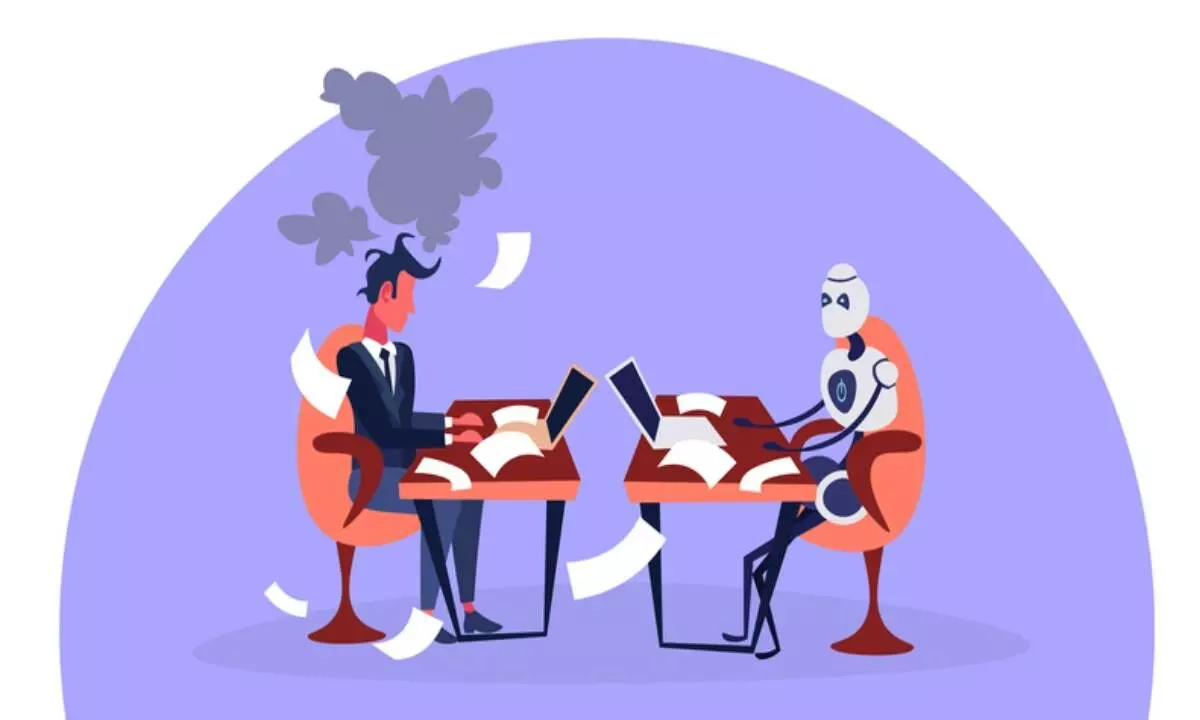2023 workplace trends: AI-powered human resources, end of hybrid work
Is ChatGPT, the Artificial Intelligence chatbot by OpenAI, the next trend to take over the workplace? Ever since ChatGPT shot to fame, several people took to Google to search “will AI put me out of job?” Even if one doesn’t take ChatGPT into account, several operations in the HR department such as generating offer letters and hiring are already being automated. In fact, 40 per cent of operations in international companies are already being performed by AI algorithms. Will AI take the "human" out of human resources? HackerEarth’s Harikrishnan says, “Amazon tried to create an AI résumé screener in 2017 which turned out to be biased against women, because the data it was fed said that men made better engineers than women. Before we start to rely on AI to take over manual HR jobs, it is important to recognise our own unconscious biases so that we don't keep perpetrating them through machines. It's debatable whether we have reached that stage or not.” She adds, “AI will be embedded more, but not take over. We still need diverse human intelligence to run AI”.
image for illustrative purpose

Is ChatGPT, the Artificial Intelligence chatbot by OpenAI, the next trend to take over the workplace? Ever since ChatGPT shot to fame, several people took to Google to search "will AI put me out of job?" Even if one doesn't take ChatGPT into account, several operations in the HR department such as generating offer letters and hiring are already being automated. In fact, 40 per cent of operations in international companies are already being performed by AI algorithms. Will AI take the "human" out of human resources? HackerEarth's Harikrishnan says, "Amazon tried to create an AI résumé screener in 2017 which turned out to be biased against women, because the data it was fed said that men made better engineers than women. Before we start to rely on AI to take over manual HR jobs, it is important to recognise our own unconscious biases so that we don't keep perpetrating them through machines. It's debatable whether we have reached that stage or not." She adds, "AI will be embedded more, but not take over. We still need diverse human intelligence to run AI".
Handa agrees. "The role of HR is here to stay and would rather gain strategic influence in the future. The 'human' aspect of Human Resources can never be neglected. Even the most sophisticated AI bots have flaws," she says. Piyush Mehta, CHRO, Genpact, adds, "We use Amber, an AI-automated chatbot to enhance employee engagement. Amber throws a body of feedback at the HR department. But the ability to process, synthesise and work on the data requires human effort. I feel the combination of AI and humans will give better results."
Besides AI, Metaverse, is another tech innovation likely to make its presence felt at the workplace. Gartner expects that by 2026, 25 per cent of people will spend at least one hour a day in a metaverse for work, shopping, education, social media and/or entertainment. As a result, it is likely that the Metaverse will make its way to the workplace in 2023. Organising virtual job fairs, recruitment drives, meetings are some of the many ways HR can use to leverage the Metaverse. Key events like company town halls and employee onboarding can also be seamlessly executed. "Virtual workspaces and meetings will reduce the dependence of employees on the office space. But Metaverse might take a while to replace the office space completely," says Handa. Mehta is on the same page as Handa. "Metaverse is all about the immersive experience. I feel, it is the future of work. It doesn't matter if it will explode this year or the year after but it is likely to have a lasting impact at the workplace. Some companies are already leveraging it but it is important to know that the technology is still in its nascent stages."
The end of hybrid work
It has been a year since we experienced the last COVID-19 wave. Most Indians returned to office in 2022 either on a hybrid or full-time basis. What happens to remote work now? Is it likely to stay? Nathan opines that "Hybrid has presented itself as a best-of-both-worlds alternative. There is merit in continuing with it in the long-term. Simply reverting to everything as it was before the pandemic means treating the pandemic as a blip, instead of the learning that it was." Handa says, "Companies that haven't fully embraced remote and hybrid work will use the upcoming economic downturn to justify return-to-office policies. Meanwhile, companies that have embraced new ways of working will find ways to maintain and improve hybrid and remote working policies. Organisations must rethink their workplace culture to be more inclusive of remote and hybrid work — which will be the new normal in 2023, albeit with a more structured force to contend with."

